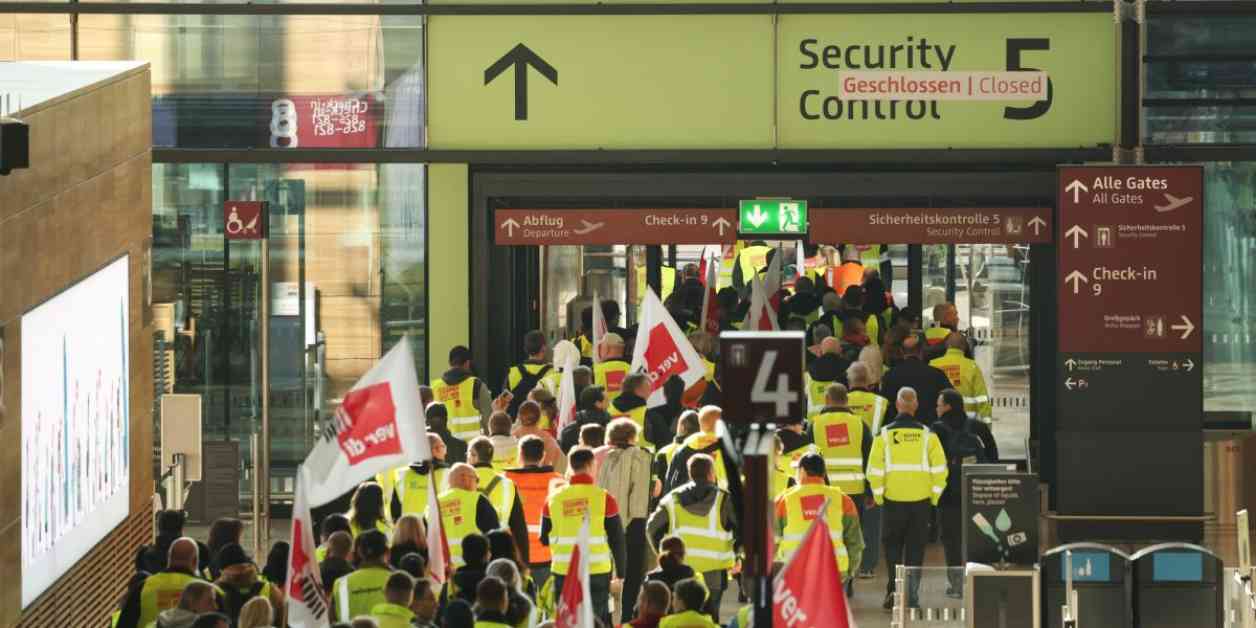In Germany, a wave of worker strikes has led to widespread flight cancellations, causing chaos for travelers across the country. The scene at Berlin-Brandenburg Airport on March 10, 2025, was one of tension and frustration as striking airport workers, carrying banners of the Verdi labor union, marched through the main departures terminal. Verdi, in its quest for wage increases from airport employers, has initiated a 24-hour strike that is set to impact half a million passengers nationwide.
As the labor dispute escalates, travelers are left stranded, flights are grounded, and the ripple effects are felt throughout the aviation industry. The clash between the union and airport management has reached a boiling point, with both sides digging in their heels and refusing to budge. The implications of this standoff are far-reaching, impacting not only the workers and management but also the countless passengers whose travel plans have been thrown into disarray.
Challenges for Passengers
For passengers caught in the crossfire of this labor dispute, the ramifications are significant. Flights have been canceled, leaving many travelers scrambling to make alternative arrangements. Delays are inevitable, and frustration is mounting as individuals are forced to navigate the uncertainty of when, or if, they will be able to reach their destinations.
Amidst the chaos, stories of missed connections, lost luggage, and disrupted travel plans abound. One traveler, Sarah, shared her experience of being stranded at the airport with her young children, unsure of how to proceed. “It’s been a nightmare trying to figure out what to do next,” she said. “I never imagined our family vacation would turn into such a stressful ordeal.”
Implications for the Aviation Industry
The impact of these worker strikes extends beyond the immediate inconvenience felt by passengers. The aviation industry as a whole is grappling with the fallout, as airlines are forced to adjust their schedules, reroute flights, and absorb financial losses. The disruption caused by the strikes reverberates throughout the supply chain, affecting not only airlines but also airport services, ground handling companies, and ancillary businesses.
Experts warn that prolonged strikes could have lasting effects on the industry, leading to decreased consumer confidence, financial instability, and long-term damage to relationships between labor and management. The need for a swift resolution to the labor dispute is clear, as the stakes continue to rise with each passing hour.
In the midst of the turmoil, passengers, workers, and industry stakeholders alike are left waiting for a resolution, hoping for a swift end to the strikes and a return to normalcy. The fate of the aviation industry hangs in the balance, as negotiations between the union and airport management remain deadlocked. As the standoff continues, the only certainty is the uncertainty that looms over the skies of Germany.



















